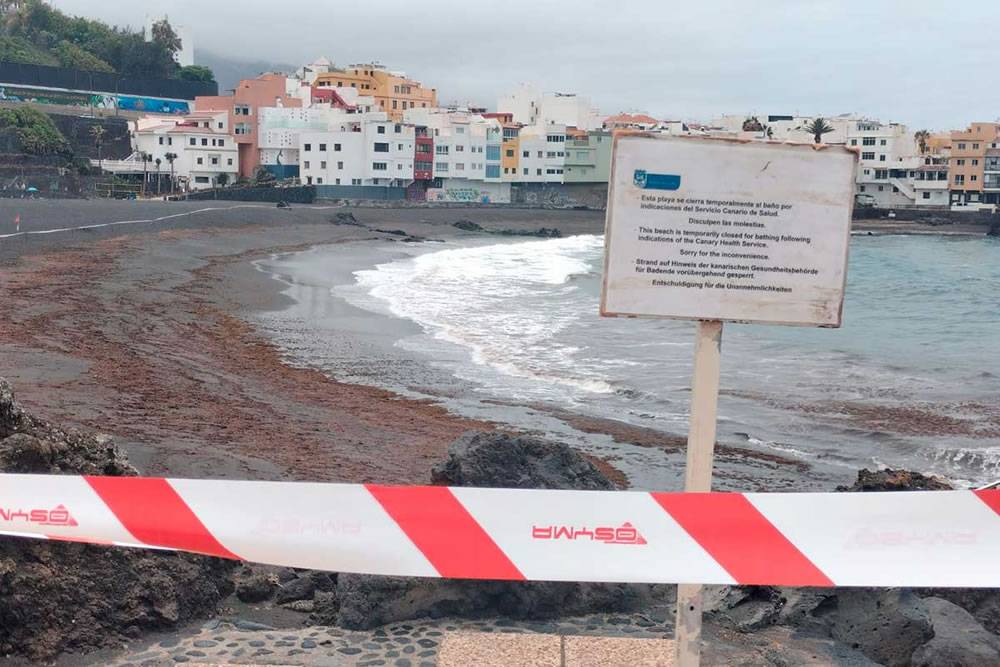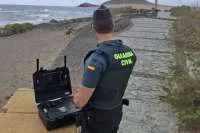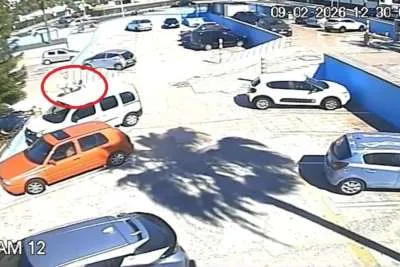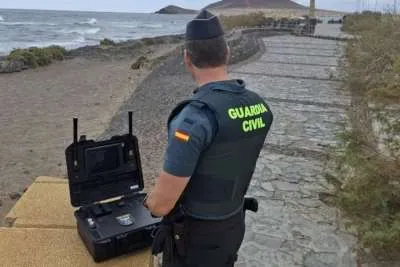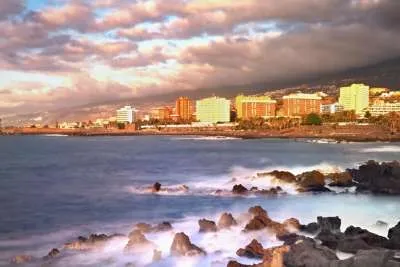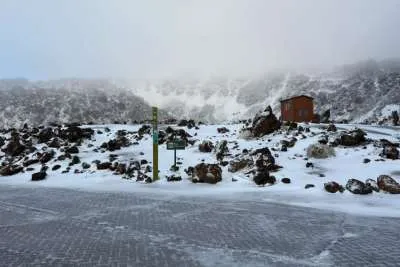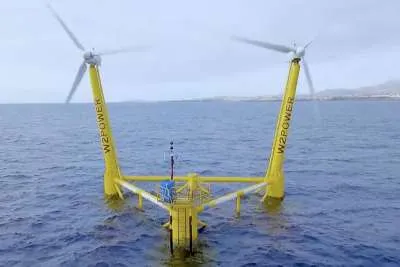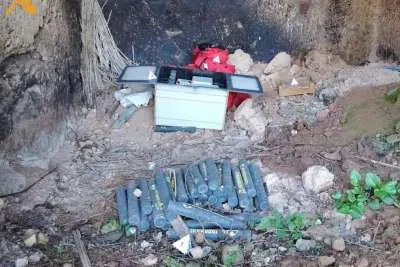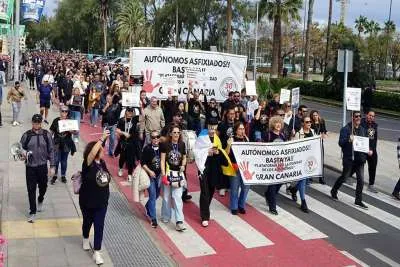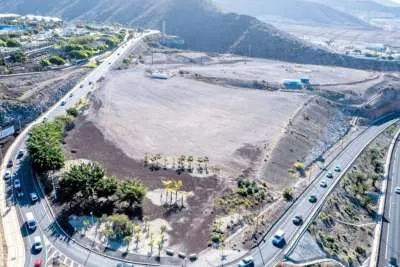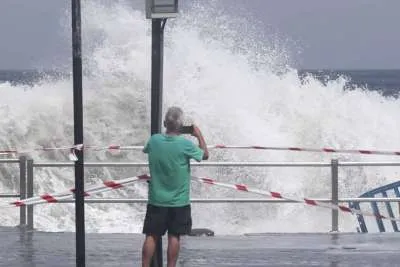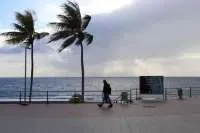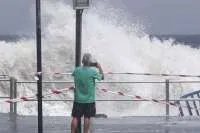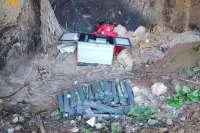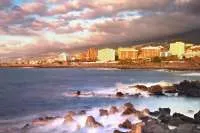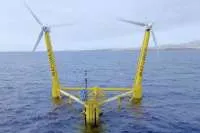Outrage at €400 fine for the Cabildo over wastewater discharges that closed beach for nearly a year
- 20-07-2025
- Tenerife
- Canarian Weekly
- Photo Credit: CW Stock Image
The Tenerife Cabildo has been fined just €400 for wastewater discharges that led to the closure of Playa Jardín beach in Puerto de la Cruz for nearly 11 months, a sanction many are outraged by given the scale and impact of the issue.
The fines were issued by the Canary Islands’ Agency for the Protection of the Natural Environment and amount to €200 each, relating to two separate infractions in late 2024 and mid-2025 and seem very lenient.
Both sanctions cite the failure to comply with one of ten conditions required for wastewater discharge permits. However, the Cabildo has already appealed both penalties, claiming they are unfounded and that no real breach occurred.
Affected Beach and Public Frustration
Playa Jardín, a major tourist attraction composed of three distinct coves: Castillo, El Charcón, and Punta Brava, was officially not recommended for bathing from July 2024 until mid-June 2025 due to repeated poor water quality.
The area most affected was Punta Brava, the largest and most popular cove, which sits closest to the discharges. Despite warnings, many locals and tourists continued to swim there.
Why Were the Fines So Low?
Many find the minimal penalties hard to understand, especially given that the same environmental agency had previously fined Puerto de la Cruz City Council far higher amounts for similar offences. Between 2018 and 2022, they were fined a total of €12,600 for unauthorised discharges from pumping stations at Playa Chica, San Telmo, and El Caletón.
In contrast, the Cabildo, despite being the body with the greatest responsibility for water quality, received no fines until the end of 2024, even though a major pipeline rupture was reported as early as July 2020. The agency claims the delay in sanctions was due to not receiving formal notice from the Canary Islands' Department for Ecological Transition. Investigations only began following a public outcry and judicial complaints filed in late 2024.
According to the Agency for the Protection of the Natural Environment, the fines were limited because the Cabildo had the appropriate permits and infrastructure in place. One penalty addressed discharges occurring before wastewater reached the Punta Brava pipeline; the other concerned stormwater overflows from the local treatment plant. The Cabildo argues these events were managed appropriately and should not warrant any penalties at all.
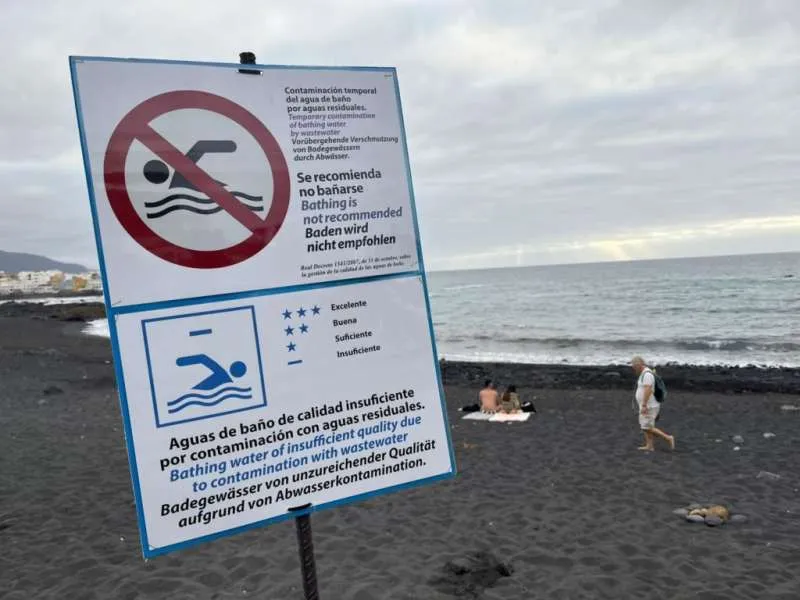
Ongoing Investigations and Wider Context
Currently, the City Council of Puerto de la Cruz faces eight more active investigations for unauthorised discharges in areas including Calle Pelimar, El Caletón, Playa Chica, and San Telmo. Five of these involve residual wastewater reaching the sea, and three involve discharges without the proper environmental permissions.
Meanwhile, Playa Jardín has once again become a hotspot for beachgoers, drawing hundreds of tourists and residents daily during the current heatwave. Still, many wonder why the main responsible body faced such minimal consequences for a year-long environmental and economic disruption.
As appeals continue and scrutiny increases, questions linger: Why did action take so long? And will the outcome set a worrying precedent for future environmental accountability in the Canary Islands?
For now, the Council awaits the outcome of its appeal, and residents await assurances that their beach will remain safe, clean, and open year-round.
Other articles that may interest you...
Trending
Most Read Articles
Featured Videos
TributoFest: Michael Buble promo 14.02.2026
- 30-01-2026
TEAs 2025 Highlights
- 17-11-2025


